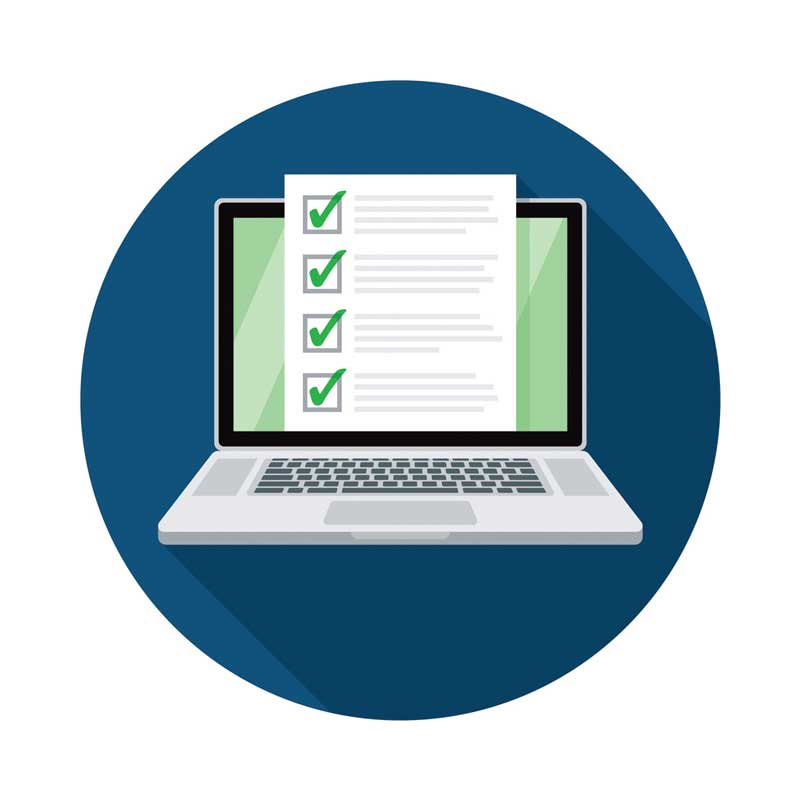20 Apr 2025
Great customer service, robust credit control and data protection should start the moment a customer walks through the door. This allows practices to make the most of pet owners’ increasing demand for a personalised and transparent service that supports an informed decision-making process…

Image: iStock / VectorMine
UK businesses have been having a tough time of late, with a record increase in the numbers of firms in critical financial distress at the end of 20241.
It’s clear the veterinary sector is not immune from financial struggles. Against a background of low consumer confidence, the Competition and Markets Authority (CMA) investigation and the cost-of-living crisis resulting in financial challenges for pet owners, the veterinary industry has been experiencing unprecedented debt levels. A recent estimate suggests that bad debt in UK vet practices has surged to between £265 million and £530 million per year, accounting for 5% to 10% of turnover.
Despite these challenges however, optimism is rising, with a resurgence of owner-operated practices following years of corporate acquisitions. There has been a notable shift towards smaller, more personalised local practices, and this means there are opportunities for those who can rise to the challenge.
Pet owners have expressed dissatisfaction with a lack of transparency around the ownership of practices and treatment prices, meaning it is difficult for them to make informed choices. It’s vital to ensure clear communication with your clients from the outset. This includes the messages being given at every stage of the customer journey; from the practice website, social media and advertising, through the appointment booking process, conversations at reception and in consults, right through to the invoicing, reminders and follow-up communications.
Developing a thorough understanding of the customer journey and putting in place robust processes to enable it, not only helps improve customer service and satisfaction, but also protects your practice against reputational damage, data protection breaches and bad debt.
The better you know your clients, the better you can meet their needs, improve patient outcomes – and ensure that you are minimising risk to the practice.
Think about the unpaid invoices you’re hoping clients will settle soon. These are not just today’s cashflow problem, but are actually devaluing your business. With veterinary practices selling for five to 13 times earnings, every £10,000 in unpaid fees isn’t just £10,000 lost, it could be up to £130,000 off your practice’s value. Corporates love practices with bad debt; they are cheaper to buy and easy targets. Credit control and debt management isn’t just about recovering fees – it’s also about protecting your brand and practice worth.

Taking basic actions can significantly reduce bad debt, starting at reception. Ensuring that personal and financial information on clients is correct and appropriately kept – ideally, separately from clinical records – is part of data protection regulation requirements as well as essential to tracing clients in the event of unpaid debts.
Whether you’re dealing with existing or new customers, it is crucial to conduct personal information checks. Record full names or, at the minimum, the initial of the first name. Requesting ID, a driving licence, or a utility bill to verify identity and address is essential. Make sure to record phone numbers and email addresses, and in the case of a family animal, put the names of all owners above the age of 18 on the account. This makes the debt a joint and several liability, making all parties equally responsible for the entire debt, and protects the practice from relationship break-ups.
When the client visits the practice, take the opportunity to double check that all details are still correct and up to date.
Ensure that your consent form authorising procedures or treatments includes an estimated price and is signed by the person named on the account. For treatment that is being covered by pet insurance, ask for an up-front deposit that will cover the anticipated excess and any co-payment excess that would be applied to the claim.
Make sure your staff understand the payment terms and options your practice offers and have resources to help guide tricky conversations about finances. Providing training on handling client conversations about payment or having a copy of a “difficult conversations script” to refer to, can help empower staff to develop confidence in approaching these conversations effectively and with sensitivity.
Both front-line and clinical staff should feel comfortable discussing financial matters and outlining payment procedures, including the possibility of taking deposits. In cases where a deposit is not feasible, ensure you are clear on
full payment terms at the end of treatment. Let
your clients know they will incur additional costs if referred to a debt collection agency.
Clients should be provided with clear and easy-to-understand information about how fees are calculated and what it is they are being charged for. Clients, especially those new to the practice, should also be provided with written information on the nature and scope of the practice’s services, including a copy of your terms and conditions. These can be included in the practice welcome pack, and if customers sign up online, ensure that a copy of the terms and conditions are available to download and that they tick a terms and conditions agreement box.
Use your practice management system (PMS) to generate weekly debt reports and assign a team member to oversee the debt management process.
Do not delay in addressing overdue invoices beyond 30 days. Support is available from professional debt collection agencies to manage the unpaid invoices, reduce bad debts, improve your cash flow and let you get on with the business of caring for your patients. The more quickly your overdue invoices are forwarded to a reputable agency for professional handling, the more likely they are to be recovered, and the less they will affect the practice’s cash flow and value.
Many collection agencies are available to choose from, so what are the options? Large agencies and legal firms process thousands of debts and do not specialise in a particular debt type. Therefore, collection rates and brand protection can be negligible.

Using a specialist veterinary collection agency brings enormous benefits, such as improved customer service and enhanced collection rates, which improves cash flow.
Specialist agencies recognise the unique relationship between pet owners and their vet practice, and can work in partnership with you to ensure that conversations and solutions are handled sensitively and don’t undermine trust in your practice.
Specialist agencies may also have complementary resources to help prevent and manage bad debt.
Such agencies can provide tried-and-tested advice on difficult situations and advise on whether legal action is appropriate or cost-effective. They may also offer tools such as a debt prevention kit with good housekeeping tips, templates for debt letters and free advice on recovering costs incurred when collecting bad debts.
They may also help strengthen your terms and conditions and provide a debt calculator, which can highlight whether bad debt is devaluing your business.
So, client data, clear communication and credit control go hand in hand for making the most of pet owners’ increasing demand for a personalised service and information that allows an informed decision-making process.
Making sure that clients’ details are correct, that they’re being provided with information at every step and that all staff are comfortable discussing finances, can relieve pressure for both clients and staff. Clients feel reassured that the practice is providing a professional service that values them as an individual, and staff can benefit from reduced numbers of miscommunications, difficult conversations and complaints. And as these basic steps will also help to reduce unpaid invoices and protect the practice’s brand, reputation, value and cash flow, it’s benefiting the practice business as well – win, win, win.
Debt Recovery Calculator, https://vetdebt.xyz/
Free Debt Prevention Toolkit, https://www.dsluk.net/debt-collection-advice/free-download/